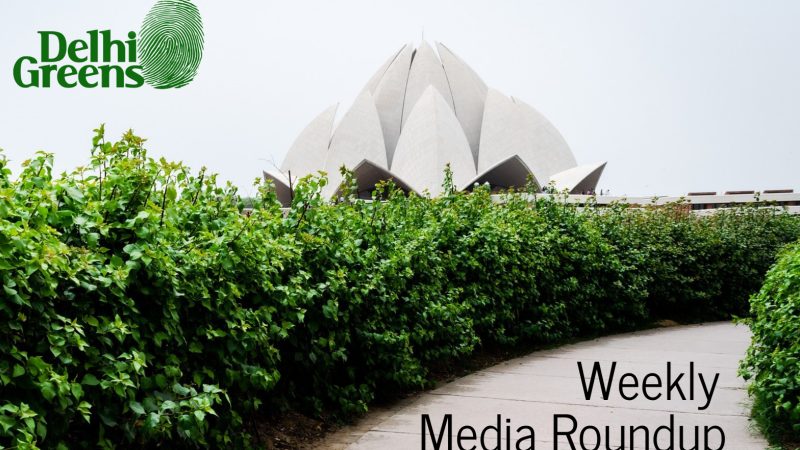Environmental News and Media Roundup for Week 25, 2012
Weekly environmental news roundup from across different media networks for week 25 (starting June 18, 2012) 2012.
1.‘High pesticide levels in groundwater’
The groundwater that most of Delhi relies on when water shortage leaves taps dry is probably far more contaminated than we can imagine.
2. Decoding Delhi-Haryana’s bone of contention
Mahesh Tak moved to the water-scarce Dwarka Sector 10 nearly a decade ago. Relief had been promised to him, in the form of water through the Munak CLC. Banking on additional 80 million gallons per day once the Munak concrete-lined channel became operational, DJB had built three treatment plants – at Dwarka (capacity 40 MGD), Bawana (20 MGD) and Okhla (20 MGD).
3. Rio Summit: Major problem lies in repudiation of principles by rich industrialised countries
Ahead of the Rio Summit, there is a measure of good news for developing countries, but not necessarily for sustainable development.
4. E-waste recycling rules notified on May 1, no infrastructure in place even now
It is now mandatory for consumers to hand over electronic waste to designated collectors for proper disposal while it is equally essential for producers, under the extended producer responsibility to take back e-waste for recycling.
5. Centre to monitor flow between Delhi, Haryana
Amid continued claims and counter-claims by Delhi and Haryana over the quantum of Yamuna’s water share, the Centre on Monday instructed one of its agencies to monitor the actual flow between the neighbours.
6. Delhi Jal Board fined for harassing consumer
Terming harassment of citizens by public authorities as “socially abhorrent and legally impermissible”, the Delhi State Consumer Commission has ordered the Delhi Jal Board to pay Rs. 8,000 to a Najafgarh resident for its failure to supply drinking water.
7. Solar power to run traffic lights, save you from snarls
If all goes well, traffic police’s power bills will show a downward trend and the traffic signals at busy intersections will perform better. Delhi Police has zeroed in on an ambitious project to harness solar power for its traffic signals.
3. North Delhi water not fit to drink: Survey
Fifty per cent of drinking water supplied to north Delhi is not fit for consumption and is a carrier of cholera, typhoid and jaundice, surveys conducted by the North Delhi Municipal Corporation have found. On the other hand, people in south Delhi get clean, drinkable water, said a recent survey by the civic body’s south arm and the Delhi Jal Board.
8. Who will clean the drains? The blame game begins
Every monsoon, civic agencies play the blame game when choked drains lead to water logging. This year, it’s slightly different. The blame game has begun before the rains. The three new civic agencies, led by the BJP, have alleged that the Public Works Department has not started cleaning the drains.
9. Poverty eradication key challenge at Rio summit
Should the world commit, even if notionally, to eradicate ‘poverty’ or only ‘extreme poverty’? Or, should countries agree to ‘right to food’ for their people? Negotiating the final declaration of the Rio summit, the US wants to own up to responsibility of eradicating only ‘extreme poverty’, and not agree to absolute ‘right to food’ for people across the globe.
10. Campaign to claim water as fundamental right launched
On a day when Rio 2012 kicked off to discuss environment and water issues, rights activists, NGOs and trade unions joined hands to launch a ‘Right to Water’ campaign in the national Capital on Wednesday.


